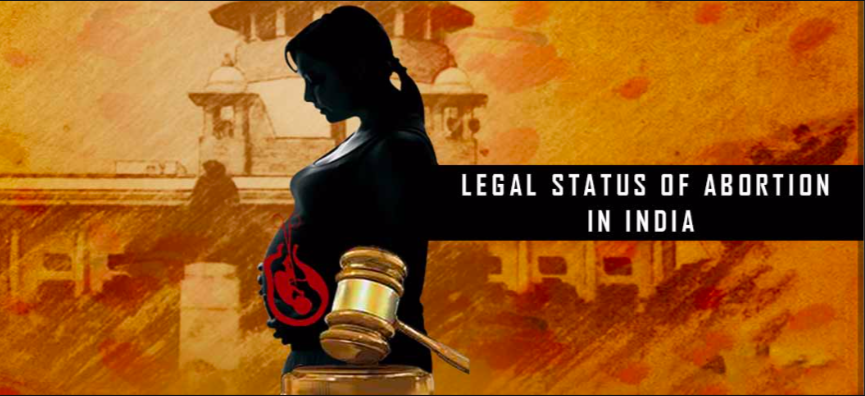Latest News
Abortion laws in India -its legality

Gender hierarchies, cultural norms, values and the impression of women in society play a crucial role in the Indian culture and likewise it is considered to be very peculiar in the context of abortion. With the statistics showing an increase in the rate of maternal deaths in India, laws relating to abortions came into force in our country. These laws related to abortions have been an issue in the today’s Indian society. Regardless of 30 years of liberal legislation, most of the women in India are still lacking in accessing to safe abortion care. Unsafe abortions is the third-leading cause of maternal deaths in our nation.
Till 1971, Indian Penal Code (IPC) provided for the provisions of abortion in India. Legally, however, IPC does not provide for direct provisions related to abortion, but it does deal with miscarriage under Section 312 to 316 of the Code. In the need of the hour and increase in sex selective abortions, the Indian Parliament enacted The Medical Termination of Pregnancy (MTP) Act, in the year 1971. The main aim was to reduce the incidence of illegal abortion and instances of maternal mortality and morbidity. In the instances of pregnancy period not exceeding 12 weeks can be terminated with a single opinion from a gynecologist formed in good faith. Whereas, in cases of period of pregnancy exceeding 12 weeks but less than 20 weeks, termination needs opinion of two doctors. This provision is made with main intention to terminate the pregnancy if there is risk of life of the pregnant woman or if it would cause grave injury to her physical and mental health, or otherwise when there is a substantial risk to the unborn child. It is clear with these provisions that the MTP Act confers the right to abortion at the discretion of medical practitioners instead of the pregnant woman. The wide discretionary powers given to the medical practitioners can lead to the susceptible misuse of the Act.
However, the regulations related to abortion policies are unworthy in order to curve the situation, rather it is mostly centered on the old school of thoughts not recognizing the human rights of women, right to choice or fundamental rights under the constitution.
In the case of State of Punjab v. M.S. Chawla, it was held that the right to health is guaranteed under Article 21. But the MTP Act violates this right as it does not confer right of abortion under Section 3 to unmarried women to termiate the preganancy which occured due to contraceptive failure. It is due to the social stigma on non-marital pregnancy. These women also suffer from mental illness due to unwanted pregnancy which risks their in turn effects their physical and mental health.
In K.S. Puttaswamy v. Union of India, the Supreme Court explicitly held that the privacy is the fundamental right under the Article 21 of the constitution that confirms autonomy, dignity the important aspects of privacy, integrated all together. In the present instance, the act violates such right of the women by not giving them a say in the abortion of pregnancy, which interfere their autonomy on their body as well as health.
In the light of these issues, there is a need to amend the provisions in order to ensure that abortion is made available to women at their choice. The Act being primarily made to curb selective abortion based on sex is no longer sufficient in the current scenario. The debate on abortion laws is more than pro- life and pro-choice. It involves both human and constitutional rights.



































































































